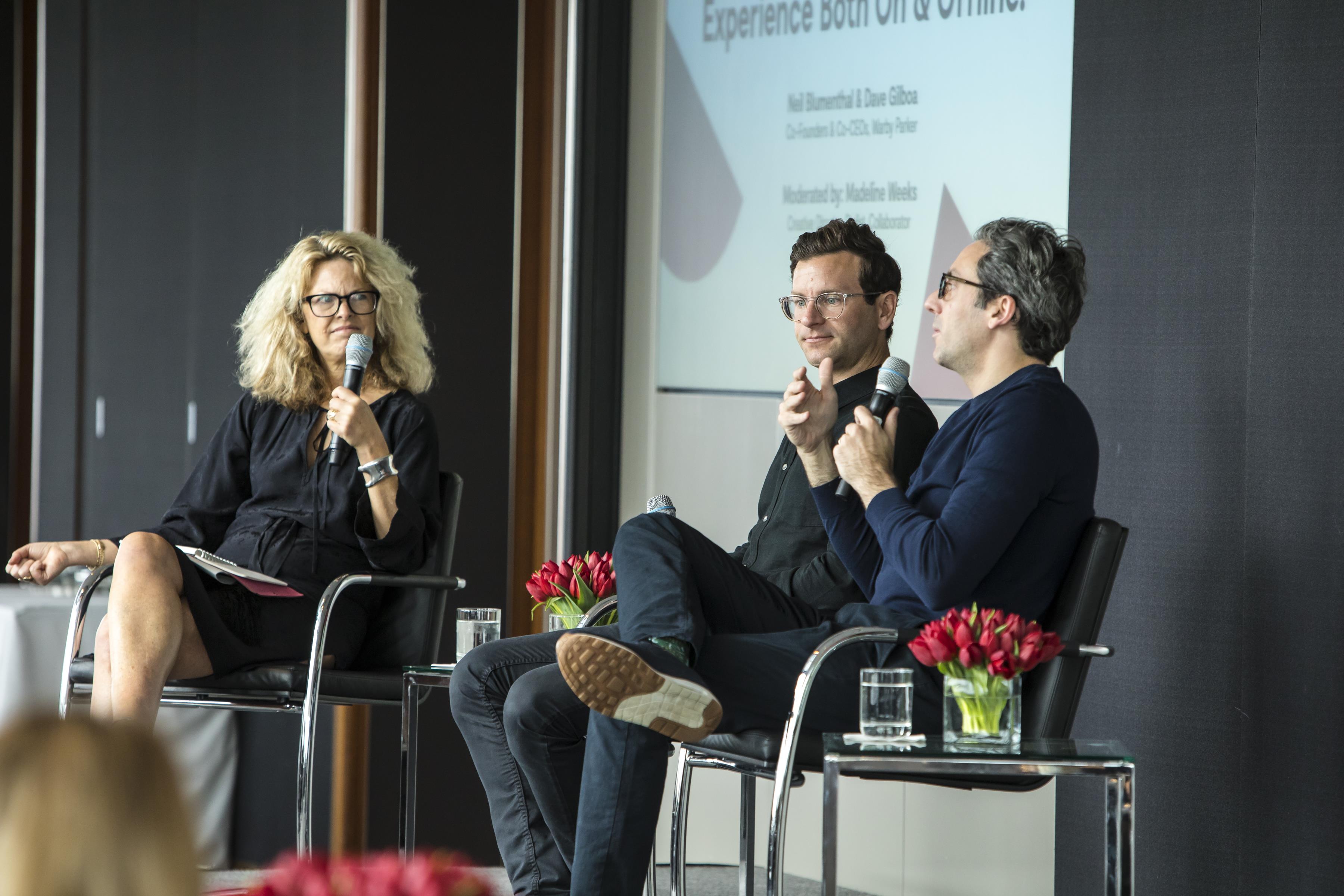“We try to connect with the woman who wears our clothes. She’s one of us,” said Valerie Macaulay, one of the three founders of successful stripe-focused brand La Ligne.
Macaulay, along with co-founders Meredith Melling and Molly Howard as well as designer Sandy Liang, was on the Female Founders panel conversation at CFDA’s inaugural Fashion Leadership Conference at Hearst last Thursday. The panel was moderated by stylist Kesha McLeod.
A common thread between La Ligne and Sandy Liang is that both female-founded brands launched within the past four years, during a time in the industry when men predominately led both luxury womenswear and menswear houses. Upon graduating, Liang struggled with the fact that there were so few women-led brands to aspire to. In Macaulay’s opinion, no one understands a women’s body better than a woman herself.
La Ligne and Sandy Liang have very different stories of how they came to fruition. Liang launched with an emphasis on wholesale partnerships as a way to build brand awareness, but is now focusing on building her direct-to-consumer business. La Ligne, meanwhile, is direct-to-consumer with the intent to keep prices lower by avoiding wholesale mark-ups (with the exception of an exclusive wholesale relationship with Net-a-Porter.com).
After the Female Founders panel wrapped, Ray Smith, of the Wall Street Journal, and moderator for the following panel, The Re-Invention of Retail, asked the hot topic industry question: is brick-and-mortar retail still relevant?
Roopal Patel of Saks Fifth Avenue, Kristen Cole of Forty Five Ten, Maria Lemos of Rainbow Wave, and Zach Overton of Samsung universally agreed that brick and mortar is more than just relevant — it’s necessary — but the dip in sales has forced everyone to essentially up their game.
Patel noted how nothing can replace the in-store experience: “You’re touching, you’re seeing, you’re smelling. It’s about experiences you can’t find anywhere else.”
In response to the shift of digitally native emerging designers wanting to go direct-to-consumer, Patel believes that, “A strong wholesale partnership provides legitimacy to young designers, infrastructure, and exposure and awareness to a different customer that you may not be able to get direct-to- consumer.”
Overton agreed: “We’re seeing that the experience is really important. Everyone’s going after the millennial demographic, and data tells us millennials are more apt to spend money on experiences than on physical items.
“Brand connection [with the consumer] has to be authentic and quite deep,” he added. “We are very much looking forward to the ways in which both designers and retailers will reinvent the customer experience and find a new, innovative form of co-existence.”
Editor’s Note: The inaugural Fashion Leadership served as the official launch of CFDA’s new Network program. Others panels included The Future of Merchandising, On Demand Manufacturing, Venture Funds & Investing, The State of Fashion, and Social Media as a Digital Marketplace.



